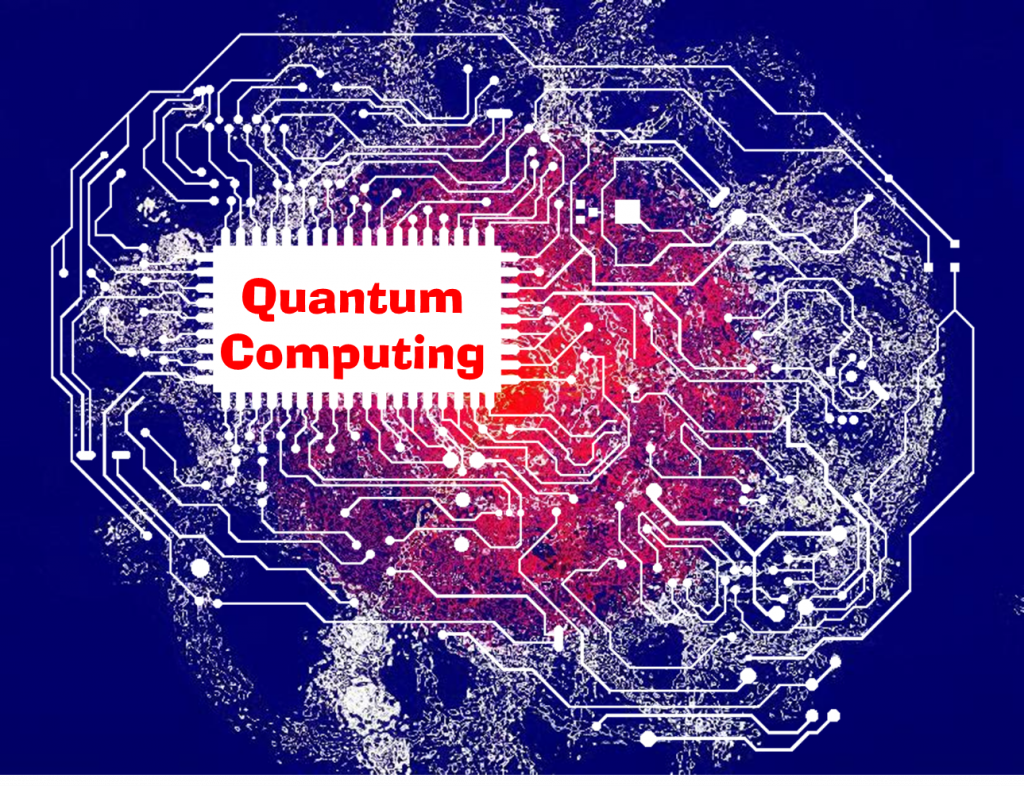A year ago, Kelly Dickerson (@Kickerson13), wrote, “Superfast computers built on the bizarre principles of quantum physics are coming, and when they finally get here, they’re going to change everything.”[1] That may sound like hyperbole; but, if Dickerson is referring solely to changing everything in the world of computing, she is not far off the mark. An intriguing announcement out of the University of Maryland indicates that quantum computers are closer than ever. “On [3 August 2016], researchers at the Joint Quantum Institute at the University of Maryland unveiled a first-of-its-kind fully programmable and reconfigurable quantum computer. The five-qubit machine, which is described in the journal Nature, represents a dramatic step toward general-purpose quantum computing — and, with it, an upending of what we can even consider to be computable.”[2] Is this a big deal? You better believe it is. “Many research groups have previously created small, functional quantum computers,” reports Dani Cooper, “but most of these have been only able to solve a single problem.” Developing a large programmable quantum computer could help scientists address some of the world’s biggest problems. “Quantum computing may well represent the biggest breakthrough in computer technology since the invention of the microprocessor,” writes Lev Grossman. “Taking advantage of bizarre effects like quantum superposition and quantum entanglement, quantum computers have the potential to unlock massive amounts of processing power, and to solve problems that would take conventional computers literally centuries.”[3] If you are unfamiliar with the theory behind quantum computing, watch the following video.
If you didn’t watch the video, the most important thing to know is that quantum computers use quantum bits (or qubits). A qubit can simultaneously represent both a 0 and 1 and that’s a little mind bending. Although the University of Maryland’s quantum computer involves a modest five qubits, “the group’s computer could potentially be scaled up to as many as 100 qubits, and, moreover, could be linked to other computers (hence the modularity), possibly by using photon channels. Linkages of these modules would constitute larger and larger quantum machines.”[4] Shantanu Debnath, the lead author of the Nature paper, told Wired, “We tried to make a quantum processor of five qubits with trapped ions that is reconfigurable, and by that I mean that you can literally program algorithms into it.”[5] Wired reporter Matt Burgess (@mattburgess1) notes that the researchers “were able to use algorithms to perform a mathematical calculation in a single step. A conventional computer would require several steps to complete the same tasks.”[6] The following video explains how the University of Maryland quantum computer works.
Eric Ladizinsky, co-founder of D-Wave, the Canadian firm claiming to have produced the world’s first commercial quantum computer, asserts quantum computers are not just the next generation of super computers they represent a complete paradigm shift in the world of computing — or, at least, they will.[7] Ladizinsky noted that when fire was first “discovered,” humankind didn’t know how to make it but knew it would prove useful for such things as providing warmth and cooking food. Once humankind learned how to harness fire they were able to confine it, control it, and make it burn hotter. That led to amazing advances like metalwork and glassware. When it comes to quantum computing, we are still in the early stages of the first revolution; but, we are already imagining what can happen when the second revolution arrives. That is what excites the scientific community and why they eagerly anticipate the development of a large-scale quantum computer. Concerning the University of Maryland announcement, Charles Q. Choi notes, “The technology could usher in a much-anticipated era of quantum computing, which researchers say could help scientists run complex simulations and produce rapid solutions to tricky calculations.”[8] He continues:
“Previous research suggested that quantum computers could simultaneously perform more calculations in one instant than there are atoms in the universe. Prior work also found that such capabilities would allow quantum computers to solve certain problems much faster than conventional computers can, for instance, breaking encryption that would take regular computers longer than the lifetime of the sun to crack.”
Dickerson concludes, “The bottom line is that regular computers have to solve one problem at a time in sequence, but quantum computers can solve multiple problems at the same time. That kind of speed as the potential to revolutionize entire industries. And it’s not just their speed. Quantum computers can solve the kind of complex problems that regular computers are really bad at solving. They’re more human-like in their problem solving approach, and that will make them better able to complement human tasks.” The University of Maryland’s announcement certainly brings the world a step closer to the quantum computing era. The scientific and computing communities are eagerly awaiting the results of the team’s effort to scale its work.
Footnotes
[1] Kelly Dickerson, “7 awesome ways quantum computers will change the world,” Business Insider, 21 April 2015.
[2] “Quantum Computing Just Grew Way the Hell Up,” Motherboard, 3 August 2016.
[3] Lev Grossman, “Quantum Computing: A Primer,” Time, 7 February 2014.
[4] Ron S., “First Reprogrammable Quantum Computer Has Been Created; Capable Of Running Three Basic Programs,” University Herald, 5 August 2016.
[5] Matt Burgess, “Engineers just created a programmable quantum computer,” Wired, 3 August 2016.
[6] Ibid.
[7] Katie Collins, “Why quantum computing will be civilisation’s next big revolution,” Wired, 16 October 2014.
[8] Charles Q. Choi, “First Reprogrammable Quantum Computer Created,” Live Science, 3 August 2016.





